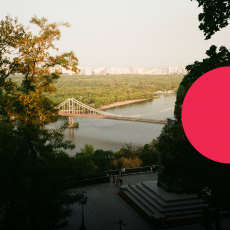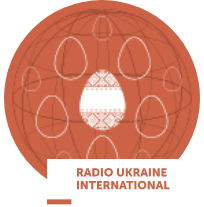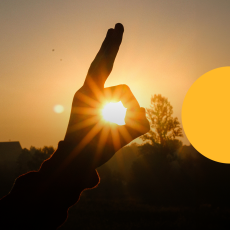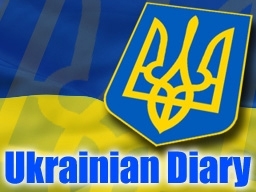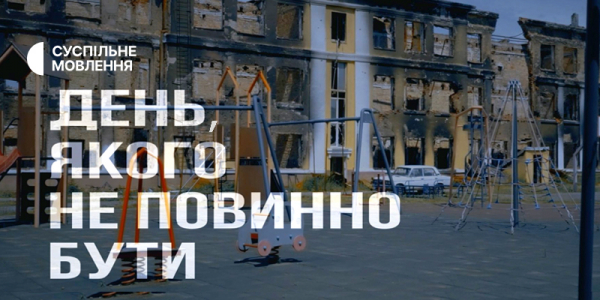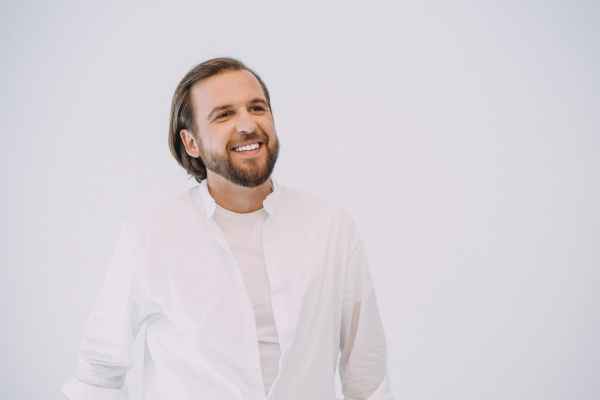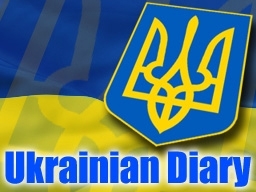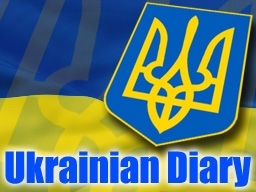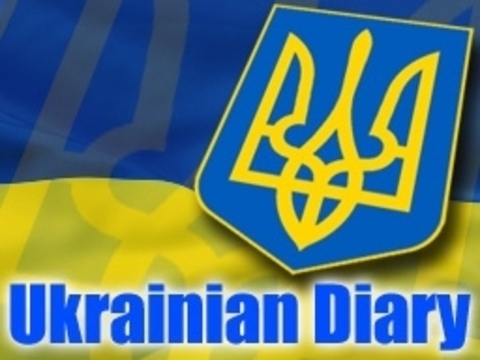Weekly sum-up of the situation in the Donbas war zone
The situation in the war-torn areas of Eastern Ukraine has been highly charged in the past week. After a shor-term period of the truce being observed on the day of the Orthodox Christmas, the Russian-occupation forces have relaunched their attacks, still using heavy weapons banned by the Minsk agreements, and causing grave loss among the Ukrainian servicemen. The enemy kept targeting Ukrainian army positions throughout the week, though the intensity of their fire has increased by the end of the week. In some cases the Ukrainian troops returned fire using non-proscribed weapons.
One of the areas, where the enemy activity was the most intense has been the Svitlodarsk Bulge, halfway between Luhansk and Donetsk, where Ukrainian army positions underwent multiple strikes, including with the use of big-caliber mortars and other heavy weapons. Ukrainian army positions in several spots northeast of Mariupol have also been shelled repeatedly from heavy weapons, among which grenade launchers, machineguns and infantry fighting vehicles. In many of those instances, Ukrainian army positions came under targetedfire from the enemy’s side, which resulted in multiple casualties. The Defense Ministry’s press center also reported on the enemy’s aerial reconnaissanceactivity. Namely drones, that are banned by Minsk, have been spotted in several locations.
In their report, the OSCE SMM have also remarked the increase in ceasefire violations.
Alexander Hug, Deputy Chief Monitor of the mission noted that the result of a recommitment to the ceasefire after the latest Minsk negotiations had been encouraging, yet not for long. At a briefing in Kyiv on Friday, Alexander Hug said:
“We have seen many recommitments before: Easter, Harvest, Back-To-School, and Christmas recommitments. These recommitments are without doubt good. At the very least they offer a period of respite for the civilian population. A period, however short, in which children can go to school in safety, in which farmers can cultivate their crops, and people can celebrate their most cherished beliefs in peace. And it also demonstrates that the ceasefire agreed almost 3 years ago is possible to maintain.” Additionally, he maintained that the ceasefire proved that the situation in Eastern Ukraine had not become a protracted conflict, sucking everyone around into a spiral of violence.
Latest developments in lawyer Iryna Nozrdovska’s murder case
A suspect was arrested in the case of murdered human rights activist and lawyer Iryna Nozdrovska. As UR reported earlier, lawyer Iryna Nozdrovska went missing on December 29, days after she helped ensure that Dmytro Rossoshanskyy convicted of running down and killing her sister with his car was not released from prison following an appeal hearing. The investigation into her sister's death in 2015 was Iryna's most prominent case. On January 1 Nоzdrovska's body was found in the river near her home village: according to police reports, she died of multiple stab wounds. What has resonated within society is that the murder followed threats made against Nozdrovska while she was seeking justice for her sister – killed by the nephew of a judge, who was head of the Vyshhorod District Court. Around 200 protesters rallied in a call for an investigation into the murder outside the national police department in Kyiv on January 2.
The National Police reported that 300 ministry employees, in particular, operatives of the Criminal Investigation Department and investigators, were involved in probing Nozdrovska’s murder. A week later, Interior Minister Arsen Avakov reported that a suspect had been arrested in the case. 63-year-old Yuriy Rossoshansky, father of Vyshgorod Court judge Dmytro Rossoshansky, has been charged with her murder.
First Deputy Head of National Police Vyacheslav Abroskin commented on the matter:
“Over 70 expert assessments have been commissioned. We have the first results now that have been presented to the court. DNA test results showed particles belonging to the suspect on the victim’s body. We’ve done the best we could. And currently, the investigation is still in progress.”
President Petro Poroshenko had remarked the efficiency and high quality of the investigation on the case that seemed to have been so rapidly solved. Yet Nozdrovska family’s lawyers and other activists have questioned whether the results presented so far were credible enough, namely whether the suspect had actually been acting alone. At a press conference on Thursday, Anastasia Nozdrovska (daughter of the victim) called on the investigators to uncover more materials on the case, as according to her, the victim’s side had only been able to inspect 10 to 15 percent of it. Anastasia Nozdrovska thanked president Poroshenko for the attention to her mother’s case, noting hovewer that he might have been fulled by the investigation’s results.
Iryna Nozdrovska’s funeral had taken place on Tuesday, and gathered dozens of people gathered to pay their last respects. Mourners placed flowers in the yard outside Nozdrovska's home in Demydiv, her home village in the Kyiv region, where eventually she was buried.
Head of the EU Delegation Hugues Mingarelli on the priorities of the EU foreign policy in relation to Ukraine
Cooperation with Ukraine is one of the top priorities of the EU foreign policy. This was stated by Head of the EU Delegation to Ukraine Hugues Mingarelli in his exclusive interview with Ukrainian Radio. While commenting on EU – Ukraine further cooperation we mentioned the recent article published by High Representative for Foreign Policy Federica Mogherini in which she outlined the EU foreign policy priorities in 2018 but never mentioned Ukraine, its struggle against the Russian aggression and the continuing occupation of Crimea and part of the Donbas region by pro-Kremlin forces. We asked Mr.Hugues Mingarelli to comment on this issue.
He said that “One of the 12 priorities mentioned by the EU High Representative for Foreign Policy was the relationship between the EU and six partner countries of the eastern partnership, and Ukraine is obviously one of these countries. So, no doubt that the development, the consolidation, the strengthening of the relationship between the EU and our eastern neighbors starting with Ukraine which is the most important of these neighbors is one of the priorities of the EU.”
At the end of last year the leaders of the EU member countries supported the extension of sanctions against Russia for another six months. However, certain EU top officials, like, for instance, Austrian foreign minister Karin Kneissl, speak about the possible mitigation of sanctions which, according to them, had failed to achieve the projected goal. We asked Head of the EU Delegation to Ukraine Hugues Mingarelli whether the EU is united when it comes to this issue.
Mingarelli’s stance was: “The sanctions against Russia for illegal annexation of Crimea and for the destabilization of Donbas are being renewed every six months for the last three years. And up to now this extension of the sanctions has always been decided by unanimity. Up to know one can say without any doubt that there is unanimity on the need to keep the sanctions in place. The sanctions that were put in place after the destabilization of Donbas can be removed only after the full implementation of the Minsk agreements. This is the official EU position and up to now the EU has been able to stick to it.”
From this year on Bulgaria took over presidency in the EU, while Italy chaired the OSCE. The political elite in both states are known for their pro-Russian attitudes. Will those attitudes be able to influence the EU position regarding the settlement of the Donbas conflict? Mr. HM said the following. “There is no indication at all that the EU position regarding this conflict can change in the near future. We know that the Italian authorities are very much determined to use their presidency in the OSCE to try to improve the situation in the eastern part of Ukraine. And I have no doubt that the Bulgarian leadership will try their best as well to mobilize all EU policies and instruments to even better support Ukraine and find political solution to the conflict.” The full version of his exclusive interview with the Ukrainian Radio is coming out in our program “Highlights” next Wednesday.
Pope Francis urged the international community to support Ukraine
Pope Francis urged the international community to continue supporting Ukraine is his annual “state of the world” address. "The year just ended reaped new victims in the conflict that afflicts the country" reads the address delivered by the Pope to the representatives of the 185 states and international organizations that have diplomatic relations with the Holy See.
In his speech Pope Francis called for the defence of life and support for families, and migrants, urging in particular to support Ukraine: “A shared commitment to rebuilding bridges is also urgent in Ukraine. The year just ended reaped new victims in the conflict that afflicts the country, continuing to bring great suffering to the population, particularly to families who live in areas affected by the war and have lost their loved ones, not infrequently the elderly and children, said Pope Francis.” The Pope also recalled that this year marks the centenary of the end of the First World War. From the ashes of the Great War, we can learn two lessons that, sad to say, humanity did not immediately grasp, leading within the space of twenty years to a new and even more devastating conflict. The first lesson is that victory never means humiliating a defeated foe. Peace is not built by vaunting the power of the victor over the vanquished. Future acts of aggression are not deterred by the law of fear, but rather by the power of calm reason that encourages dialogue and mutual understanding as a means of resolving differences. This leads to a second lesson: peace is consolidated when nations can discuss matters on equal terms.
As UR reported earlier, a special humanitarian initiative “Pope for Ukraine” was set up in this country with the aim of helping all citizens of Ukraine who became victims of the military operations in the East or turned into internal migrants.
